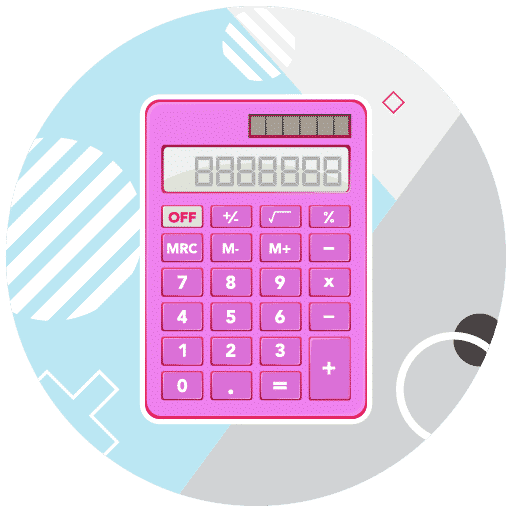The basal metabolic rate calculator measures the number of calories required to keep your body functioning. These basal functions include circulation, breathing, ion transport, cell production, nutrient processing and so on. Once you’ve determined your BMR, you can simply calculate how many calories you need per day to maintain weight or loose weight.
How to Calculate
BMR is calculated based on several different factors that are personal to you like your gender, age, height and weight. To calculate your basal metabolic rate, simply input the respective values in the calculator above.
The formula used in this calculator is (10 x weight) + (6.25 x height) – (5 x age) + s
This formula is based on the regression analysis performed by gigacalculator.com over the years and has a good predictive accuracy for everyday use.
The measurements are measured in kilograms for weight, meters for height, years for age whereas s is a gender adjustment. The result shows the number of kCal you need per day.
Applications
Getting to know about your basal metabolic rate and the total number of calories you need per day is a vital step in the process of achieving or maintaining your desired weight.
There is often one misconception about BMR as people tend to use Basal Metabolic Rate (BMR) and Resting Metabolic Rate (RMR) interchangeably. However, these are actually two different metrics with slightly different definition as explained below:
- Basal Metabolic Rate : It is a measurement of the number of calories your body need to perform your body’s basal functions which includes cell production, breathing and circulation. In other words, it is the calories your body needs to keep you alive.
- Resting Metabolic Rate: It is a measurement of the number of calories your body burns at rest, usually measured in the morning before you eat or exercise.
To achieve weight loss goal, it is of paramount importance to factor in both your Basal Metabolic Rate as well as your Total Daily Energy Expenditure (TDEE). BMR tells you how many calories you body needs to survive whereas TDEE tells you how many calories you burn per day including typical exercise.
The key to weight loss is calorie deficit which is burn more calories than you consume. Once you know your BMR and TDEE, all you need do is to make sure your calorie intake is less than that number. Generally speaking, a calorie deficit of 500-1000 calories per day should result in a 1-2 pound weight loss per week.
Always remember to track your progress and be consistent. Keeping a weight loss journal might also be a good idea. Do connect with your family, friends and healthcare team to work out the best plan for yourself over the long-term. Your ideal weight goal is just a few steps away.








